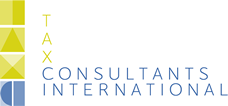Corporate Tax Services VAT advice & compliance Company Formation Services Accounting & Corporate Secretarial Services Global Mobility Services Corporate compliance International labor and cross border assignments Payroll & HR Tax compliance
Dutch tax position of self-employed individuals
For people who do not work on the basis of an employment contract it can be relevant to know upfront how they will be treated for the levy of Dutch income tax, wage tax, social insurance contributions and the income-dependent health insurance contribution (in Dutch: 'Inkomensafhankelijke bijdrage Zorgverzekeringswet' or 'Zvw'). Also third parties can have an interest in this qualification, since they may also be facing obligations in view of the potential (deemed) employment relationship under the Dutch Chain Liability Act (in Dutch 'Wet Ketenaansprakelijkheid' or 'WKA') and/or the Lending In Liability Act (in Dutch 'Wet Inlenersaansprakelijkheid').
For the levy of Dutch income (and wage) tax, a distinction must be made between the following different qualifications of the activities performed:
- income from employment; or
- income from other labor; or
- income from a private enterprise; or
- income as director with a major shareholding.
Each category of income has its own rules to determine the taxable basis, which may deviate significantly in particular with regard to the applicable tax rate, available tax deductions, allowances and tax credits.
A client may have a Dutch wage tax withholding obligation if it pays a remuneration to a person which must in fact be qualified as an “employee in fact”. For the levy of wage tax, employee social insurance contributions and the Zvw contribution a 'substance over form' approach must be applied.
Before 1 May 2016 it was possible to receive a so-called employment relationship statement (in Dutch: 'Verklaring arbeidsrelatie' or 'VAR') from the Dutch tax authorities. As per 1 May 2016 the VAR-statement has been abolished and was replaced by the Employment Relationships Deregulation Act (DBA Act), under which so-called 'model agreements' can be used. The model agreements have attempted to provide certainty on whether an individual is actually an employee of a company. However, these agreements may still result in uncertainty with both individuals (acting with their private enterprise, or ZZP-ers) and contractors, even more if the situation is not de facto covered by a model agreement.
New legislation regarding the qualification of the employment vs. independent relationship is a matter of continuous debate and drafting. A web-module has been launched by the Ministry of Social Affairs and Employment, under which clients could receive clarification whether they can hire a self-employed person for a job, or whether an employment contract is required. This web-module is not obligated to use, the outcome of the online tool is merely an indication and not a legal decision.
In the meantime, the Dutch tax authorities only act in the event of malicious intent to avoid an employment relationship (intentional false self-employment), or if a client does not follow instructions within a reasonable period of time after an inspection by the Dutch Tax and Customs Administration. The Dutch tax authorities have announced to strictly enforce the independent legislation rules ultimately on 1 January 2025. At the same time, there will be new rules to make working with employees and self-employed individuals clearer, which is expected ultimately 1 July 2025.


.png)



